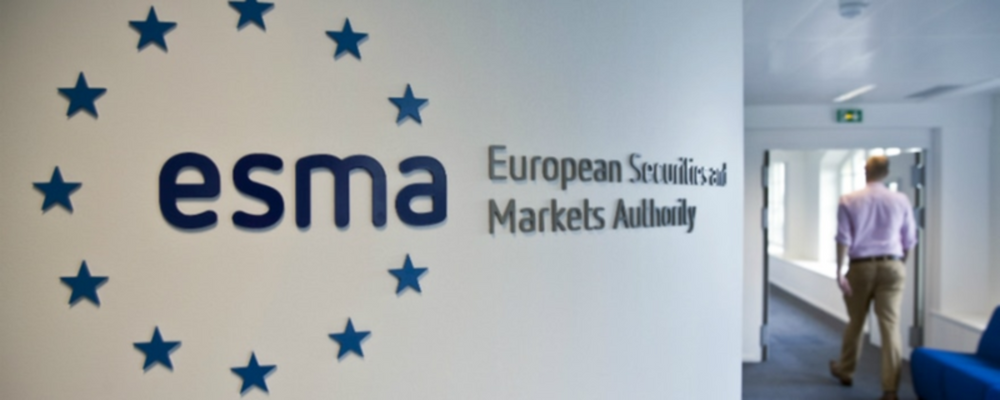February 14, 2019 | AtoZ Markets - Back in March 2018, the financial regulator of the European Union, the European Securities and Markets Authority (ESMA), rolled out new regulations for Forex trading in the EU. What are the new changes?
The new regulations concern a wide range of items: imposing limits on trader benefits (e.g. binary option and bonuses), removing IB rewards, require brokers to provide transparency and negative balance protection measures, and most importantly – downgrading the maximum available leverage.
However, while many Forex brokers have considered this new set of rules to be extensively limiting, others have applauded them for protecting traders.
EU Forex Brokerages Bypass ESMA New Restrictions
In a bid to find out how EU licensed Forex brokers have adapted to this new set of rules concerning maximum leverage, AtoZ Markets got in touch with the support and sales teams of the biggest Forex brokers (by their trading volumes).



Being one of the key characteristics of trading Forex, we asked if it's possible for a citizen and EU resident, looking to trade with high leverage, specifically 1:100 and 1:200 leverage options, which are above what ESMA outlines, 1:30 maximum leverage for retail traders. Their response?
Most brokerage firms specified that it is possible if only the account is upgraded to a Pro account. Moreover, the representatives of these top-rated firms, which are also licensed abroad, offered us an alternative by directing us to create accounts with offshore brokers who are not affected by ESMA new regulations. Some of them are'
- The Bahamas (3 companies)
- Australia (5 companies)
- South Africa (2 companies)
But what happens if you insist on opening an account with an EU regulated Forex broker? From our findings, some will require you to register with the broker first. Then you will need to fill out documentation that would prove your compliance with the following 3 requirements:
- Have a massive transfer history with the broker
- Own assets worth more than 500,000 Euros
- You must be a professional Forex trader with years of experience
While some brokers require proof of two. Other brokers will simply ask you to confirm and sign. Thus, giving you almost instant access to professional trading.
AtoZ Markets carried out the daunting task of contacting 12 EU Forex brokers. 10 brokers advised EU residents to register with their overseas brokerage firms since ESMA regulations do not cover those jurisdictions.
Meanwhile, the other two brokers, since they do not have brokerages outside the borders of the EU, simply asked for verification - without proof - that you qualify to be a professional trader. Is this, however, the proper way out?
Educating Forex Traders Is The Way Forward
While the strategy of sending EU Forex traders to brokerages with alternative regulation seems beneficial in the short-term, this method might fail from a long-term perspective.
AtoZ Markets strongly believe that there are much better alternatives that allow Forex traders to engage in high leverage trading as ESMA is going to step up and start imposing more strict regulations on FX brokers.
Therefore, we are in the school of thoughts, that helping traders achieve higher levels of education to eventually become actual pro traders is a better option.
John F. Kennedy once said "There is only one thing, which is more expensive on the long term than education, no education."
If Forex traders are thoroughly schooled at using complex analytical techniques when trading, brokerages on their part will be able to encourage their growth in terms of ability and capital. This will eventually result in traders becoming qualified for pro trading within EU.
At the moment, we have on our Forex webinars page, online forex brokers who have taken constructive action towards educating traders to be astute at Forex trading.
On that page, we have brokerage firms like HotForex, BlueSkyForex, and FBS. These entities have taken it upon themselves to produce a large library of webinars that mostly touch upon basic topics like:
- What is Forex trading?
- Advanced Forex Trading Strategies
All of these webinars aim to help traders achieve higher success rate in the market.
These webinars concern:
- Live Market Analysis
- Wolfe Wave trading
- Scalping Strategies
These webinars repeat on the same subject several times. Thus, giving traders a chance to either get refreshed on the subjects or ask questions they had not previously considered.
Final Thought
So in conclusion, directing traders to different jurisdictions where ESMA regulations don't apply is a short term solution. That will only empty the EU Forex market.
Rather, brokers need to understand the ebenfit of education. They need to take positive action towards educational campaigns for forex traders. Only this way brokers can attract and grow new professional traders. This could also further be increasing broker revenue.
Think we missed something? Let us know in the comments section below.



